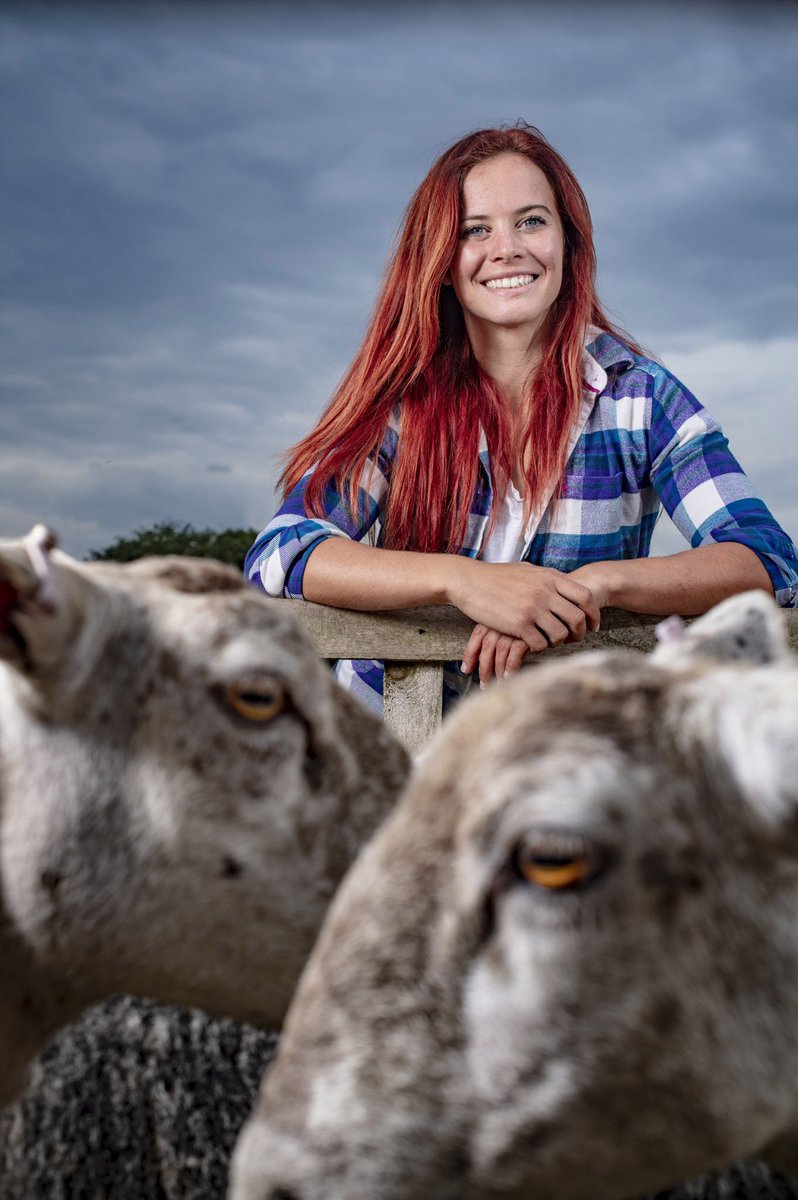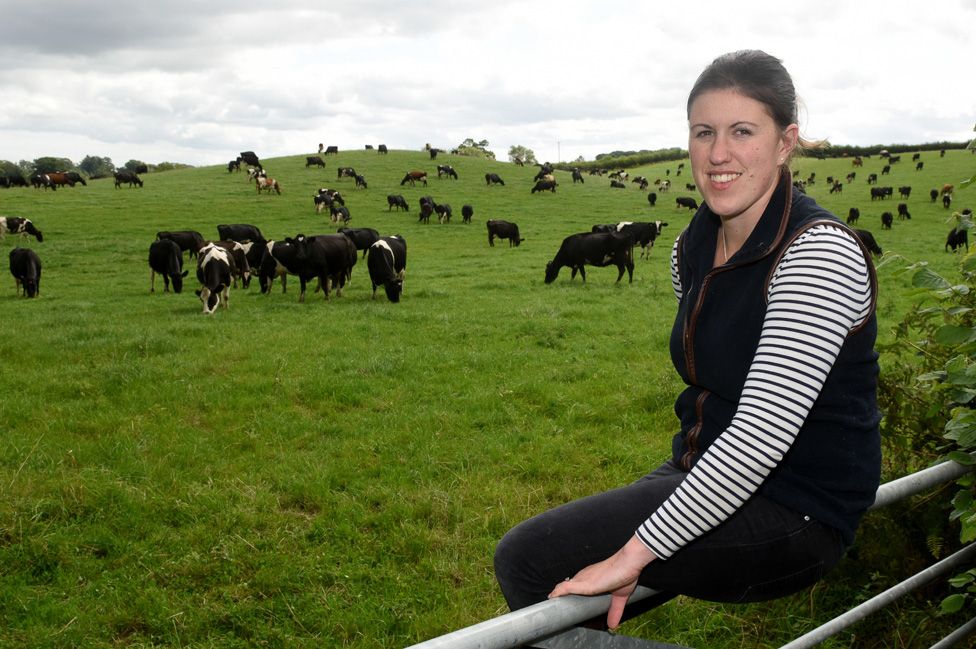THREE BRITISH WOMEN ARE READY TO CHALLENGE IN AGRICULTURE...
Hannah Jackson was helping a farmer get his sheep ready for a country show, when he told her to let "the lads down the road" groom the rams because they were "far too strong" for her.
The 27-year-old did not listen. "I went into the pen where there were these big male sheep, flipped one on its bum and started filing its feet," she says. "I'd stand shoulder-to-shoulder with any man."

More and more women like Hannah, who now runs her own farm, are entering the male-dominated UK agriculture industry.
About 17% of farmers are female, up from 7% in 2007-8, according to last year's Office for National Statistics' annual population survey.
Hannah, who grew up in Wirral, near Liverpool, did not consider farming as a career until she witnessed a lamb being born while walking in the Lake District, aged 20.
"I'd never seen anything like it," she says. "To watch the natural instincts of the lamb kicking and how well the mum was mothering was incredible."
Around six years later, she runs a small farm in Cumbria with a flock of 120 sheep, while also looking after flocks on other nearby farms. "I lamb thousands of sheep every year now, but it's still just as awesome," she says.
But it has not been easy. "I had people that wouldn't give me a chance when I originally came into farming: I had red hair, I was a proper Scouser, I'd never run a farm before, and I was female, so I had many different barriers that I was trying to overcome."
Although women have always been involved in British farming, Hannah says in the past they have typically been in the background.
Now, social media is allowing women a platform to "shout about it", she says.
Hannah calls herself the "Red Shepherdess" - after her distinctive scarlet hair - and has nearly 25,000 followers on Twitter and 16,000 on Instagram.
She also made a name for herself after becoming one of the first women to appear on Channel 4's reality show SAS: Who Dares Wins, in which ex-special forces soldiers put recruits through the SAS selection process.
She says she does not shy away from manual labour on the farm. "The last thing I will do is get on my tractor," she says. "I'd literally rather shift it with my hands."
Liz Haines, who works as a dairy farmer in north Shropshire, says potential female farmers should not be put off by the physical labour. The 30-year-old studied English at Oxford University and worked in publishing in London for several years, before deciding to take up farming with her husband.

"I'm not naturally an outdoorsy person," she says. "I'm a bookworm, so it's been a massive shift for me. I've surprised myself by what I'm able to do." Liz says she is able to carry on working while having young children
There is a negative perception in the UK that farming is not for academic people, she says. "Even my husband was told: 'You're a clever boy, you shouldn't go into farming.'
"Actually, both of us have made far more money doing what we do with the dairy farming than we would have if we'd stayed in our respective careers."
Farming has allowed her to continue working while looking after two small children, now aged one and three.
When her children were babies, she carried on working with them in a sling. "I don't know if I could have done that with an office job," she says. "It's not really the accepted thing to take your baby to work with you."
There have been downsides to having children while working on the farm, however. Her first son was born during calving season - "a crazy, hectic time of year" - and as a new mum, Liz had to monitor the calves on her laptop from her hospital bed.
Young women are also proving they can farm in urban areas. Sinead Fenton, 28, has been growing vegetables and edible flowers side-by-side on a small plot in east London for more than a year. She says the "flower-led" growing technique encourages pollinators while reducing problems with pests.
She says she developed a "really bad relationship" with food when she was a child and was anxious about trying anything new.
"There's very clever marketing in the food system. It tells you our food is better than anything you can cook yourself, so put your trust in us and eat our product.
"I was so used to food being packaged that I didn't really understand home-cooked food. It just felt safer to eat that stuff. I basically lived on a diet of hash browns, beans and dry pasta."
But she became interested in food while working in Mongolia. "We were out in the desert and we had a goat. Then, one day, we didn't have a goat," she says. "That was the first time I faced what meat actually was, not just this thing that comes in packets in Tesco."
At the time, Sinead - a geology graduate - was working in mining. "Working in an industry that was so unsustainable, I wanted to try and channel myself into something that was more sustainable and made a tangible change," she says.
She says growing vegetables gave her a sense of purpose and she discovered a supportive network of female farmers who grow food in the capital.
More women are following them into the UK farming industry. Female students now outnumber men almost 2:1 on agriculture and related higher education courses, making up 64% of the 2017-18 cohort, according to the Higher Education Statistics Agency.
Meanwhile, some 44% of agriculture, horticulture and animal care apprentices were women in 2017-18 - up from 39% in 2014-15, according to data from the Department for Environment, Food and Rural Affairs.
Sinead says she is proud of what she has achieved since she began growing vegetables.
"Although we've done it on small scale, we've done it really well. I feel big-headed or cocky saying that, but I'm learning to see my success." She pauses, then adds: "It's a strange thing to do that as a woman - right?"
www.bbc.com
Comments
Post a Comment